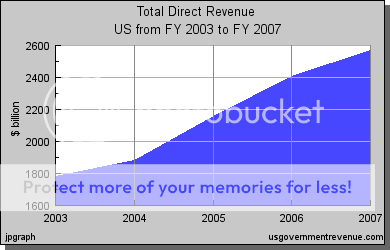- Joined
- Mar 5, 2008
- Messages
- 112,982
- Reaction score
- 60,540
- Location
- Sarasota Fla
- Gender
- Undisclosed
- Political Leaning
- Undisclosed
Perhaps a budget that has percentages instead of fixed dollar amounts? It would require that individual agencies have more decision power over what to do with the money and how many people to hire or fire (and stuff like that) but perhaps it could work.
Agency funding based on percentages would definitely be better.
I'd definitely prefer a predictable yearly tax rate and my goodness does it need to be simplified.
I don't think the percentage idea would work. It would make it impossible for the agencies to predict with any kind of accuracy future funding levels which would make them inherently inefficient.

